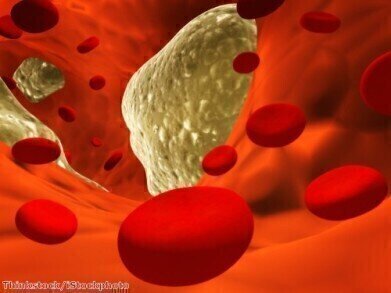-
 Air pollution can stop 'good' cholesterol functioning, causing clogged arteries
Air pollution can stop 'good' cholesterol functioning, causing clogged arteries
Air Monitoring
Air pollution can affect 'good' cholesterol leading to stroke and heart attack
Jun 03 2013
A new study published in Arteriosclerosis, Thrombosis and Vascular Biology has detailed how air pollution caused by diesel fumes could stop good cholesterol functioning. According to the study, cholesterol can be prevented from working against 'bad' cholesterol that can clog arteries. This could ultimately lead to individuals suffering strokes or heart attacks.
The environmental health study, led by Michael E. Rosenfield at the UW School of Public Health, is the first to look into how normal high-density lipoprotein (HDL) can be affected by air pollution. The study investigated how HDL's protective function can be altered and how this can lead to heart disease.
HDL works as an antioxidant in the body. It captures and excretes low-density lipoprotein (LDL) from the body by blocking the oxidation process. If LDLs oxidise it causes blood vessels to inflame, which hardens arteries. HDL also helps to stop inflammation that is a result of white blood cells attacking tissues that are affected by particulates from air pollution. Having high levels of HDL is usually a sign of lower chance of a stroke or heart disease.
The study found that the HDL did not perform as well as an anti-inflammatory of anti-oxidant when exposed to diesel exhaust. Air pollution means that the cholesterol is unable to operate in a protective way within the body, allowing LDL to build up and allowing white blood cells to affect tissues affected by air pollution.
Mr Rosenfeld said: "This has some pretty significant implications for how exposure to air pollution can impact development of cardiovascular disease. Even short-term exposures to pollution can have pretty long-term effects."
The study included exposing one set of mice to levels of diesel exhaust comparable to people's everyday exposure for two weeks. The results from this set of mice were compared to a control group of mice that were only exposed to clean air for the same amount of time. A third group of mice was then exposed to the same levels of diesel exhaust fumes as the first group for two weeks, followed by a week of filtered air.
The second part of the experiment was to assess whether the HDL was able to return to its normal functions. Researchers found that one week recovery time was not sufficient to repair the damage to the HDL.
Digital Edition
IET 34.2 March 2024
April 2024
Gas Detection - Biogas batch fermentation system for laboratory use with automatic gas analysis in real time Water/Wastewater - Upcycling sensors for sustainable nature management - Prist...
View all digital editions
Events
May 13 2024 Munich, Germany
May 15 2024 Lund, Sweden
May 15 2024 Frankurt-am-Main, Germany
May 20 2024 Columbus, OH, USA
May 21 2024 Lagos, Nigeria

















